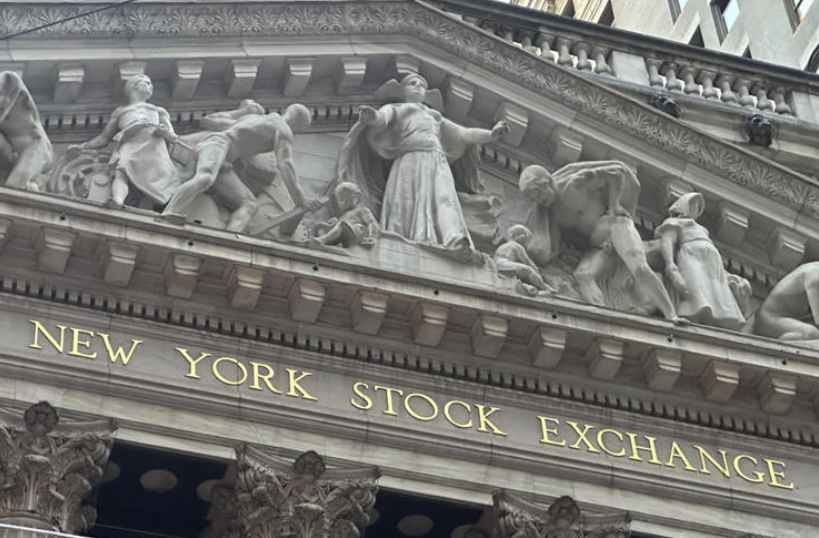Trump Takes Credit for Market Rises but Deflects Blame for Sell-Off
- quinnvaras
- Mar 12
- 3 min read

Introduction
In recent months, former President Donald Trump has continued to make bold claims regarding the stock market, often tying its performance to his political fortunes. While he has been quick to credit market rallies to investor confidence in his potential return to office, he has dismissed or redirected blame for market downturns, particularly in the wake of his trade policies and tariff implementations. This shifting stance on market trends underscores broader concerns about economic volatility and political influence on investor sentiment.
Trump's Shifting Narrative on the Stock Market
Throughout the past year, Trump has made numerous statements linking stock market gains to his electoral prospects, arguing that investors anticipate his policies will drive economic growth. Conversely, when the market experiences sharp declines, he has deflected responsibility, often blaming the Biden administration or external economic factors.
Key instances of Trump’s market-related rhetoric include:
January 29, 2024 (Truth Social): Trump declared that stock market gains were driven by the expectation of his victory, despite ongoing economic challenges such as inflation and geopolitical instability.
March 12, 2024 (Truth Social): He reiterated that the market was climbing solely due to polling numbers favoring him.
May 15, 2024 (Truth Social): Trump cited financial analyst Scott Bessent’s assertion that a market crash would occur if he lost the election, drawing parallels to the Great Depression of 1929.
August 4, 2024 (Truth Social): As markets declined, Trump shifted blame, accusing the Biden administration of incompetence and claiming that Vice President Kamala Harris lacked economic acumen.
October 29, 2024 (Rally in Allentown, Pennsylvania): He warned that a Democratic victory would send the market "down the tubes."
January 7, 2025 (Press Conference at Mar-a-Lago): He highlighted market records post-election, taking full credit for investor optimism.
March 9, 2025 (Fox News Interview): Trump urged investors not to focus on short-term market fluctuations, a stark contrast to his previous emphasis on market performance as a barometer of his success.
Market Volatility Under Trump’s Influence
Despite Trump’s confidence, market movements have been turbulent, with recent downturns largely attributed to economic policy shifts under his influence. The implementation of tariffs has played a significant role in investor uncertainty, leading to declines in major indices:
The S&P 500 fell more than 5% since his inauguration in January 2025.
The Nasdaq Composite saw an 11% decline over the same period.
The Dow Jones Industrial Average, while initially resilient, slipped 2% in response to trade uncertainties.
Investment firms and analysts have expressed concerns over the economic consequences of Trump's policies. HSBC downgraded its U.S. equities outlook, citing uncertainty surrounding tariffs, while Morgan Stanley’s Mike Wilson projected that the S&P 500 could dip to 5,500 before rebounding to 6,500 by year-end 2025.
Contradictions in Economic Messaging
Trump’s evolving stance on market fluctuations reflects a broader challenge in economic messaging. While he has historically used stock market gains as a measure of his administration’s success, his recent dismissal of declines indicates a selective approach to economic accountability. His promotion of tariffs as a wealth-building strategy has been met with skepticism from financial experts, who warn of potential recessionary effects.
During his March 9, 2025, interview on Fox News, Trump described tariffs as a "transition" period that would ultimately strengthen the economy. However, within days, he told reporters aboard Air Force One that investors should expect "hundreds of billions of dollars in tariffs" and an eventual economic windfall, despite ongoing market instability.
Conclusion
Trump’s fluctuating stance on the stock market underscores the challenges of aligning political rhetoric with economic realities. While he continues to claim responsibility for market gains, he simultaneously dismisses declines as irrelevant or attributable to external factors. As the market reacts to his policies, investor confidence remains uncertain, and economic experts continue to debate the long-term implications of his trade agenda. Whether his reassurances hold true or market volatility persists will shape both economic policy discussions and political narratives in the coming months.







Comments